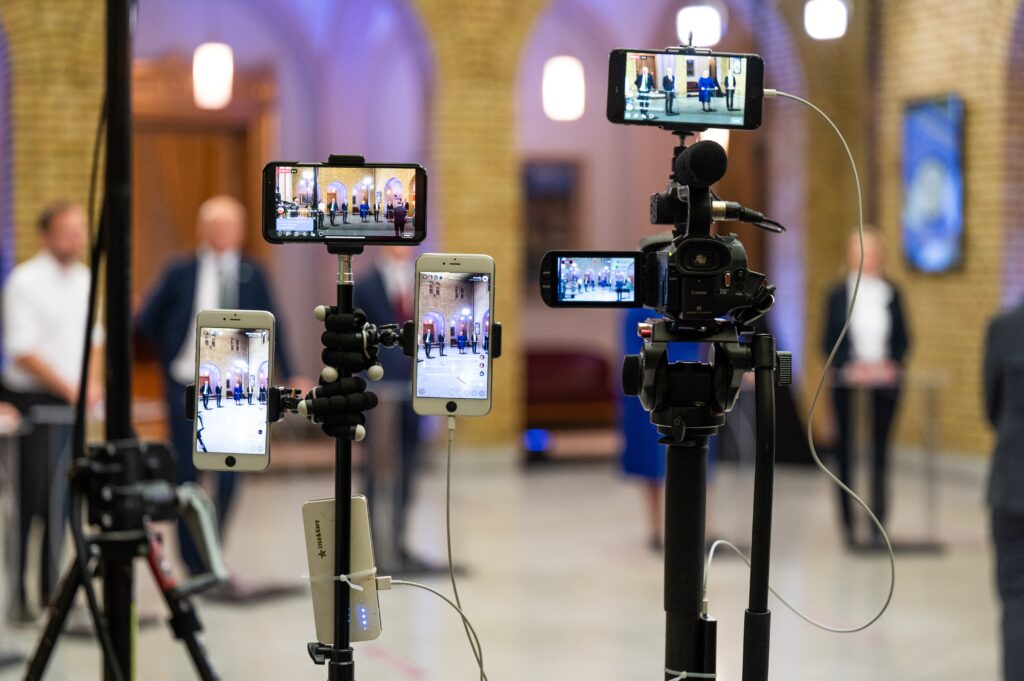This course is designed to equip humanitarian spokespeople and aid organizations with the knowledge and skills they need to effectively communicate with the media and the public during times of crisis… and dealing with the daily pitfalls. By completing this course, participants will be able to:
 Understand your particular media landscape and how to navigate it
Understand your particular media landscape and how to navigate it- Develop effective messaging and key talking points
- Have a system for delivering those messages without memorization
- Prepare for and conduct media interviews
- Handle difficult questions and situations
- Use social media and other digital tools to amplify their message
Course Content:
- Module 1: Understanding Your Unique Media Landscape
- Module 2: The Message System – Easily Create and Remember Your Media Messages
- Module 3: The Answer System – Be prepared for any question that comes your way
- Module 4: The Sound Bite System – Learn to get the media to choose your exact quote
- Module 5: Use Social Media and Digital Tools better and smarter
Customized modules available for all of our clients including crisis training or publicity consulting.

Humanitarian work can be challenging, and it is not just on the front line of crisis and disaster where the difficulties lie. One of the main pains that humanitarian spokespeople deal with communicating with the media.
Humanitarian organizations are often called upon to provide information and updates about ongoing crises and emergency situations. However, communicating effectively with the media can be a difficult task, as humanitarian spokespeople must often convey complex and sensitive information in a clear and concise manner, while also ensuring that the privacy and dignity of those affected by the crisis are respected.
Another pain that humanitarian spokespeople face is handling difficult questions and situations. Journalists may ask tough and potentially sensitive questions, and it’s the spokesperson’s job to answer them in a way that is both honest and respectful. Additionally, in times of crisis, the media may be focused on sensationalizing the story rather than providing accurate information.
Let’s face it. There is pressure to be always available and responsive to the media. Humanitarian spokespeople may be called upon to speak to the media at all hours, which can be challenging for their work-life balance. We can help you refine your systems.
Finally, there is the pressure to ensure that the organization’s message is communicated in the most effective way possible. Humanitarian organizations may have limited resources, and it’s crucial that the message is communicated in a way that resonates with the public and inspires action.
The benefits of our Media Training for Humanitarians course are numerous and will help participants to improve their communication skills and navigate the media landscape with confidence.
First, the course will give participants a better understanding of the media landscape and the different types of media situations that they’ll face. This landscape has changed dramatically in the last three years and even in the last year. This knowledge will help them to make informed decisions about where to send their message and how to tailor their communication to different audiences.
Second, the course will help participants to develop effective messaging and key talking points. By learning how to communicate clearly and concisely, they will be better equipped to convey complex information in a way that is easy for the public to understand.
Third, the course will prepare participants for media interviews. They will learn how to handle difficult questions and situations and how to use body language and other techniques to deliver their message effectively.
Fourth, the course will provide participants with the skills to use social media and other digital tools to amplify their message. With the rise of social media, it is more important than ever for humanitarian organizations to be able to use digital tools to reach a wider audience.
Finally, the course will help humanitarian spokespeople to handle the pressure of being always available and responsive to the media. They will learn how to balance the needs of their organization with their own work-life balance.
Find out how you can sharpen your media skills as a humanitarian.
Reach out to us for more information about our “Media Training for Humanitarians” program. Learn from an expert and gain the confidence and knowledge you need to communicate your organization’s mission and message effectively to the media and the public.
Contact us to get a quote and take the first step towards improving your impact today.
